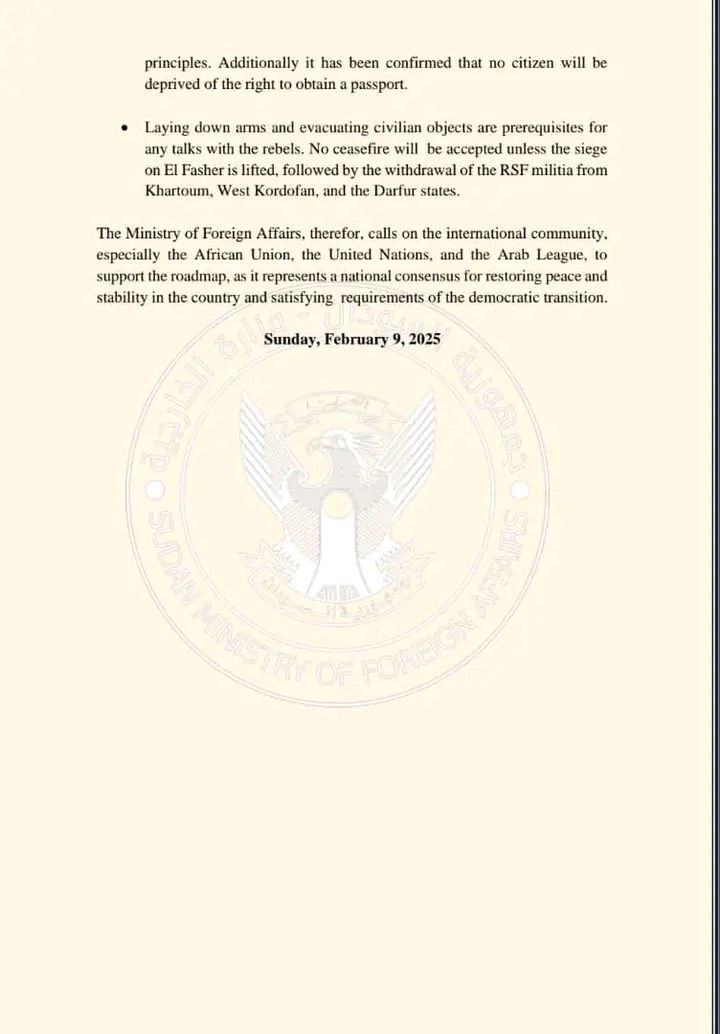Sudan Charts a Path to Peace: Government Announces Post-War Roadmap
In a significant move towards restoring stability, Sudan's government has unveiled a comprehensive peace plan aimed at guiding the nation through a post-war transition. The roadmap emphasizes national dialogue, the formation of a technocratic government, and constitutional reforms to facilitate a civilian-led administration.

Key components of the Peace plan.
1. National Dialogue: The government plans to initiate an inclusive national dialogue, engaging various political factions, civil society groups, and community leaders. This dialogue seeks to address the root causes of the conflict and build a consensus on the nation's future direction.
2. Technocratic Government: A technocratic wartime government is proposed to focus on achieving military objectives and managing the country's affairs during the transition. This government will comprise experts and professionals tasked with implementing policies aimed at stabilizing the nation.
3. Constitutional Reforms: The plan includes modifying the interim constitution to exclude any civilian or Rapid Support Forces (RSF) partnerships, concentrating power within the military. This move is intended to streamline governance and pave the way for a future civilian-led administration.
Since April 2023, Sudan has been embroiled in a devastating civil war between the Sudanese Armed Forces (SAF), led by General Abdel Fattah al-Burhan, and the paramilitary Rapid Support Forces (RSF), commanded by Mohamed Hamdan Dagalo. The conflict has resulted in significant humanitarian crises, including widespread displacement and hunger.
The international community has been closely monitoring the situation in Sudan. External actors, especially Middle Eastern countries such as Israel, Qatar, Saudi Arabia, Turkey, and the UAE, hold significant influence and could play a crucial role in ending the conflict.
While the announcement of the peace plan is a positive step, significant challenges remain. The exclusion of civilian and RSF partnerships in the proposed constitutional reforms may raise concerns about the inclusivity of the transition process. Additionally, the success of the national dialogue will depend on the willingness of all parties to engage in good faith and make necessary compromises.
The path to peace in Sudan is fraught with complexities, but the government's roadmap offers a structured approach to addressing the nation's challenges. The coming months will be critical in determining whether this plan can bring about lasting stability and pave the way for a democratic transition.